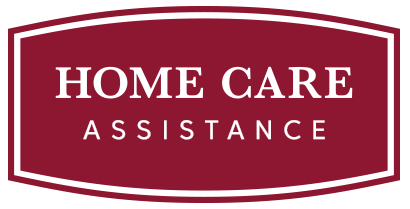5 Tips for Caring for Seniors with Multiple Health Conditions

As adults continue to age, it’s more likely they’ll develop various types of health conditions. However, managing these problems can be difficult for seniors and their caregivers. Take a look at some of the tips you can use as a family caregiver to provide adequate care for a senior loved one with two or more severe health issues.
1. Get Educated
Your loved one’s primary care physician can provide instructions for day-to-day medication management, meal plans, physical exercises, and more. The doctor will have in-depth recommendations about medication optimization and can also educate you on your loved one’s conditions and how to alleviate the symptoms associated with each issue. These recommendations can help your loved one’s treatment be more effective and prevent other health issues.
2. Coordinate Schedules
Develop a schedule for your loved one’s medical appointments and share it with your siblings and other caregivers to ensure your parent never misses a doctor visit. The schedule should be planned out weeks in advance and include backup scenarios in case of emergencies. You should also create a schedule for prescription pickups. It’s best to use the same pharmacy for all medicines. If this isn’t an option, assign one family caregiver to each pharmacy to prevent confusion.
For some families, caring for a loved one can be overwhelming at times. If you’re the primary family caregiver for a senior loved one living in Dallas, 24-hour care is available if your loved one’s health has become too difficult to manage without professional expertise. At Home Care Assistance, we take measures to help seniors prevent illness and injury by assisting with exercise and mobility, preparing nutritious meals, helping with bathing and other personal hygiene tasks, and much more.
3. Encourage Healthier Habits
Making healthier choices about diet, exercise, and hobbies can prevent health conditions from escalating. Many of the symptoms associated with conditions like heart disease, some cancers, and diabetes can be eliminated when seniors stop smoking, stay physically active, follow a good diet, participate in purposeful activities, and take up other healthy habits. Talk with your loved one about making healthy choices and detail all the benefits.
If your loved one needs help adopting and maintaining healthy habits, consider enlisting the help of a professional caregiver. When considering elderly care, Dallas families should make sure their senior loved ones have the resources they need to maintain their independence and remain healthy. Trusted in-home care professionals can assist seniors with daily tasks like cooking, bathing, and exercise, and they can also encourage them to focus on healthier lifestyle habits.
4. Monitor Medications
Side effects are common with many medications. However, the results can be dangerous when combined with other prescriptions and side effects. Therefore, you’ll need to monitor your loved one’s treatment and report any problems immediately. The doctor may suggest other non-medication therapies that are available to treat the multiple conditions. You should also let the doctor know if the medications have become too difficult to manage. When this happens, your loved one may stop taking the medications altogether. Informing the primary care physician about ineffective medications allows him or her to change the prescriptions or alter the dosages.
5. Remain Respectful
Living with multiple health conditions can be difficult for seniors and negatively affect their quality of life. They may lose their sense of control, which increases the risk of depression. Always treat your loved one with respect. Your parent didn’t ask to be in this situation, and it may be difficult for him or her to rely on others for assistance. Maintaining a sense of dignity could enhance your loved one’s mental and emotional health, staving off depression and other serious issues. Find out what your loved one is capable of doing independently and build your routine around those strengths, as opposed to focusing on his or her weaknesses.
Not every senior has the same care needs, which means they don’t all need the same type of at-home care. Dallas families can rely on Home Care Assistance to provide individualized care plans to meet your elderly loved one’s unique care needs. Our holistic Balanced Care Method was designed to help seniors focus on healthy lifestyle habits such as eating nutritious foods, exercising regularly, and maintaining strong social ties, and our Cognitive Therapeutics Method offers mentally stimulating activities that can stave off cognitive decline and delay the onset of dementia. Call one of our friendly Care Managers today at (214) 363-3400 to learn more about our customized care plans.

